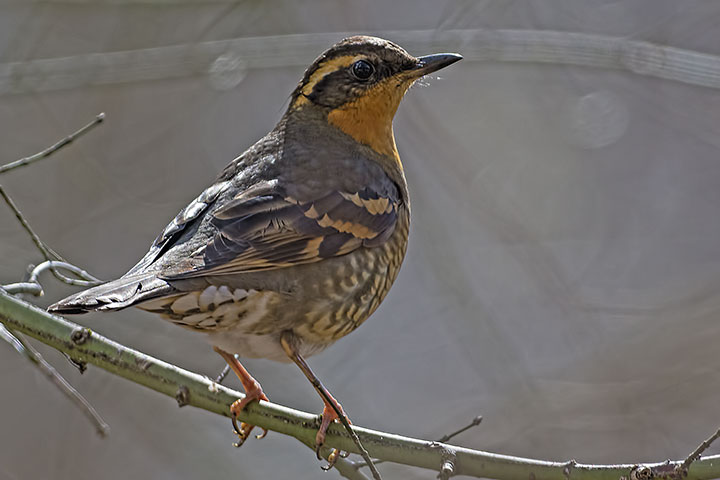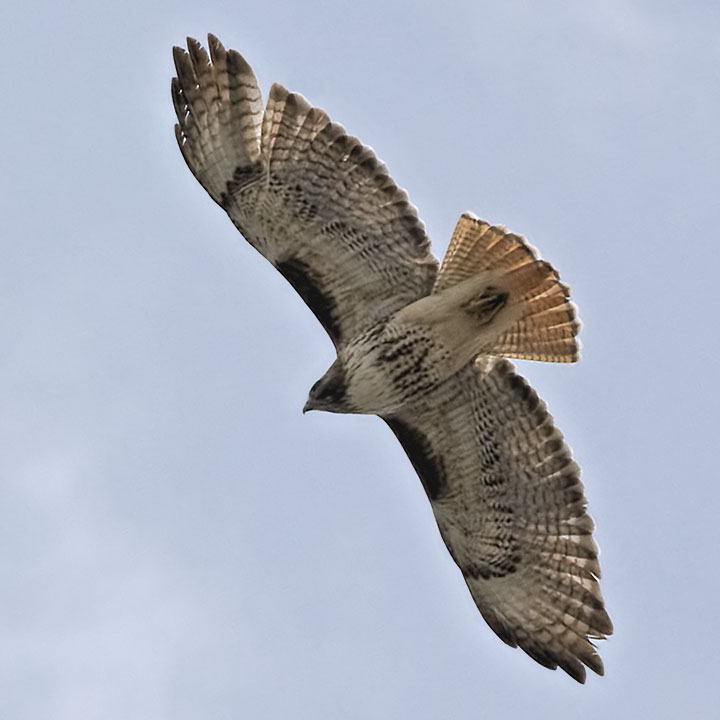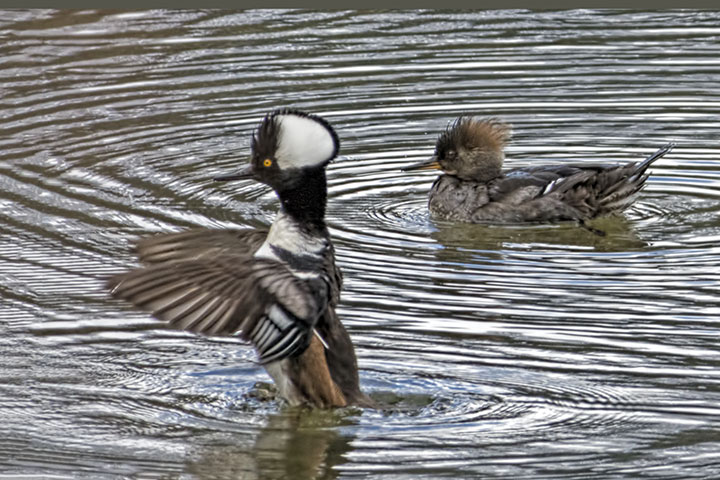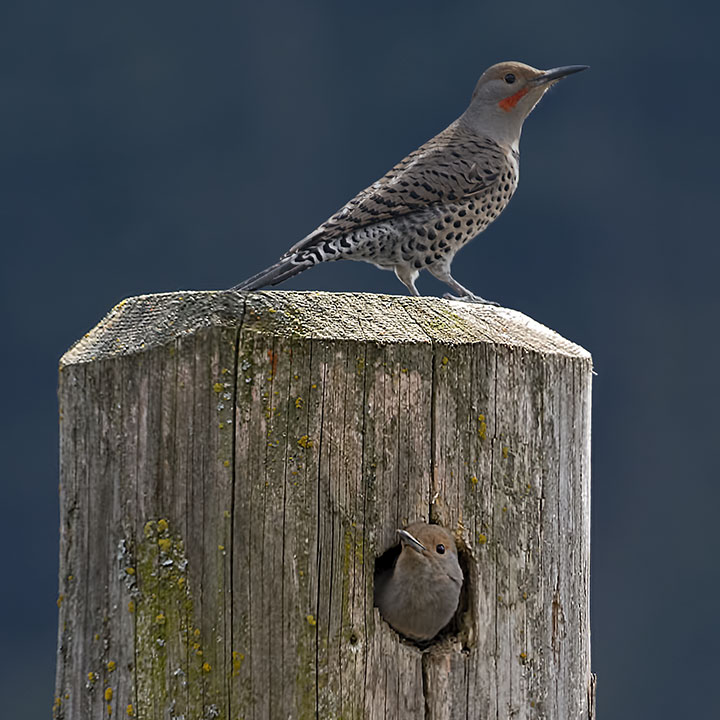Sometimes March 20th or 21st is proclaimed as the official first day of spring. This, of course, is nonsense: no officials have ever proclaimed this—and why would they? Further, the idea is silly: spring arrives slowly and at a different time in Rossland than in Creston. The dates mark the spring equinox, an astronomical event that may or may not correspond to a useful local meteorological transition.
Yet, at roughly this time of year (as distinct from on this particular date) there is a gradual transition to springtime. Here are a few birds seen over the last few days that speak to this change.
For a week or so, I have been treated to the song of the Varied Thrush, but spotting one of these skittish birds, let alone photographing one, proved difficult until this morning. This bird might well be passing through the region to breed farther north.
Similarly, this soaring Red-tailed Hawk might stay around here, but is more likely to head farther north to breed.
The Hooded Mergansers are likely to stay around and breed. The male is on the left.
This Northern Flicker couple is clearly planning for chicks. Last year, flickers carved a cavity in this piling, but did not nest there. Maybe this year, they will. 

Thanks for this Alistair, it seems I have never seen a female northern flicker before. How odd is that?
Lorna, they are the ones without the red moustache.
How delightful Alistair; you are always there (with your trusty camera) to share these beauties… that I hadn’t the wit to appreciate when I was young!
Marie, I also lacked the wit (and camera equipment) to appreciate them in those years.
Thank you, Alistair, for more of your splendid photos. Maybe we’ll host some of your migrants in our little piece of northern forest later this spring. We were treated to a visit from a varied thrush soon after we moved north. I heard a nuthatch just this morning, although we’ve heard them now and then throughout the winter months. We were surprised that they stayed here – tough little birds, just like the pine siskins and chickadees.
Lynn, we are only prepared to lend you some of our birds and insist you return them this fall.
It’s a deal 🙂